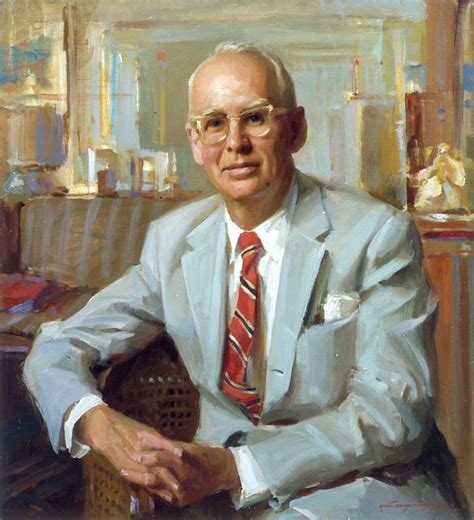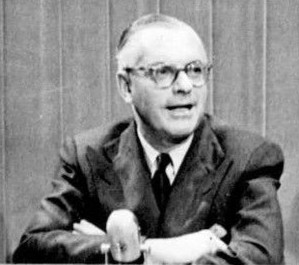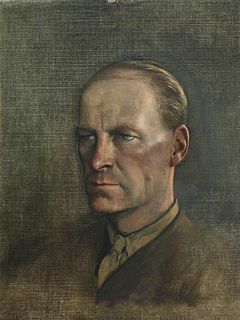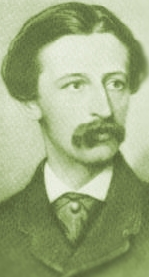A Quote by Charles Scribner, Jr.
Reading is a means of thinking with another person's mind; it forces you to stretch your own.
Related Quotes
Reading is a pleasure of the mind, which means that it is a little like a sport: your eagerness and knowledge and quickness count for something. The fun of reading is not that something is told to you, but that you stretch your mind. Your own imagination works along with the authors, or even goes beyond his, yields the same or different conclusions, and your ideas develop as you understand his.
What counts, in the long run, is not what you read; it is what you sift through your own mind; it is the ideas and impressions that are aroused in you by your reading. It is the ideas stirred in your own mind, the ideas which are a reflection of your own thinking, which make you an interesting person
When listening to another person, don't just listen with your mind, listen with your whole body. Feel the energy field of your inner body as you listen.That takes attention away from thinking and creates a still space that enables you to truly listen without the mind interfering. You are giving the other person space-space to be. It is the most precious gift you can give.
If you are reading in order to become a better reader, you cannot read just any book or article. You will not improve as a reader if all you read are books that are well within your capacity. You must tackle books that are beyond you, or, as we have said, books that are over your head. Only books of that sort will make you stretch your mind. And unless you stretch, you will not learn.
Only through the medium of the public physical world can the mind of one person make a difference to the mind of another. The mind is in its own place and in each of us lies an inner life, the life of a ghostly Robinson Crusoe. People can see, hear, and jolt one another's bodies, but they are irremediably blind and deaf to the workings of one another's minds
Reading activates and exercises the mind. Reading forces the mind to discriminate. From the beginning, readers have to recognize letters printed on the page, make them into words, the words into sentences, and the sentences into concepts. Reading pushes us to use our imagination and makes us more creatively inclined.
I believe you have to write every day–make the time. It’s about having an organized mind instead of a chaotic and untidy one. There is a myth that writers are bohemian and do what they like in their own way. Real writers are the most organized people on the planet. You have to be. You’re doing the work and running your own business as well. It’s an incredibly organized state. [Also reading]…one of the things reading does do is discipline your mind. There are no writers who are not readers.
I found myself thinking a lot about my own spirituality. What it means to be Jewish, what it means to forgive, what it means to sacrifice, but mostly what it means to be alive, how to be a better person, how not to make the mistakes my parents had made. I guess that's what one might typically call a midlife crisis.
Truth is always here. That's the only way truth can be. Truth cannot be anywhere else. The only time it can be is here, and the only place it can be is now. But the mind is never here and is never now. Hence, mind and truth never meet. The mind goes on thinking about truth, and the truth goes on waiting to be realized, but the meeting never happens. The meeting is possible only if mind stops functioning, because mind means the past, mind means the future. Mind is never here-now. Whenever you start thinking, you are going astray. If you stop thinking, suddenly you are at home.
This is what meditation means: how to be not identified with the mind - how to create a space between yourself and your own mind. It is difficult because we never make any separation. We go on thinking in terms that the mind means me: mind and me are totally identified. If they are totally identified, then you will never be at peace; then you will never be able to enter the divine, because the divine can be entered only when the social has been left behind.


































